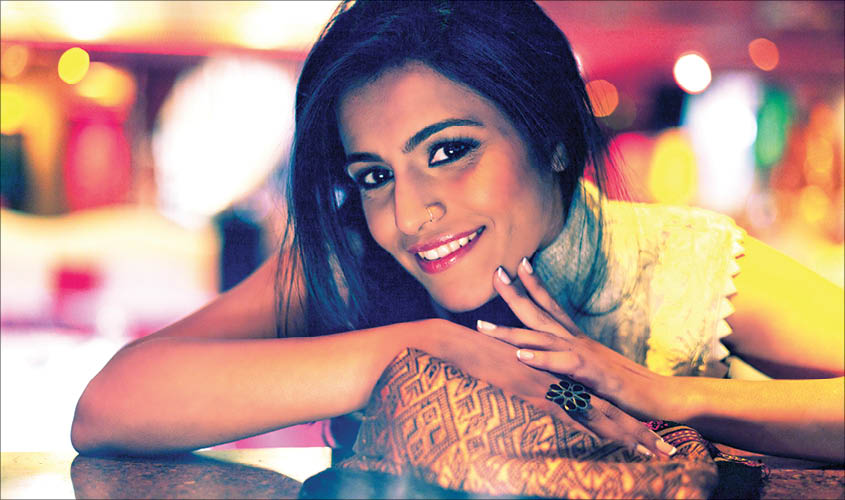Hindustani classical singer Falguni Shah is one of the three Indian-origin musicians nominated for the Grammys this year (the award ceremony is scheduled for 10 February 2019). Falguni, or Falu Shah as she is popularly known, has earned a nomination under the Best Children’s Music category for her album Falu’s Bazaar.
The Indian-American musician spoke to Guardian 20 about her Grammy nomination. She said, “It is still sinking in and I feel truly humbled, honoured and feel lucky because of the nomination.”
Falu’s Bazaar, which was released last year in February, is not a stereotypical children’s album. It is calm, mature, rich in melodies and also teaches classical ragas. It took the singer-songwriter around 18 months to complete the album.
Falu wrote the songs as a response to the many questions her son Nishaad would often ask her. “When my little son started preschool, he came home with questions like, ‘Ma, why is our food yellow?’ ‘Why do we speak a different language at home versus school?’ ‘Why do we count our numbers in a different language?’ I thought the best way to answer all his questions was through music, and so I started writing songs for him. That was the birth of Falu’s Bazaar,” she told us.
With this album, whose tracks are written in Hindi, English and Gujarati, Falu also intends to introduce children to different aspects of Indian culture. The singer said, “I was hoping through this album that every child would feel great about their own identity whether Indian or Chinese or Latino.”
To what extent being a mother helped her in the writing of the lyrics? Falu said, “Being a mother greatly helped me with these songs—they were written from a mother for her child.”
The album comprises 10 songs, about various topics ranging from how a child can learn to say their own name, to how to say hello in five languages etc. There are songs about the basics of Indian classical music, including the taal rupak.
The album also includes a lullaby, “Nishaad’s Lullaby”, that has been passed down in Falu’s family for the last five generations.
Rigorously trained in the Jaipur gharana school of music, Falu began learning classical singing from the legendary sarangi player and vocalist Ustad Sultan Khan when she was only three. Falu believes that children should begin their music education early in life. And this album is also intended as an early exposure to classical music for her son.
Falu said, “I feel it’s very important for children to listen to all types of music and I wanted my son to start learning Indian classical music at a very young age. I wrote this album keeping that in mind. In this album, I introduce taal and alaaps in a very playful way, so that children can sing along with the songs without even realising they were rendering the taal rupak while saying their numbers and colours in Hindi, and were listening to alaaps and improvisations in songs like ‘Hulululu Bus’ and ‘Tararum pumpum’.”
Falu moved to the US in 2000 when she was appointed as a visiting lecturer at Tufts University in Massachusetts. The musician, however, continued her training and learned Western music for a while. The training helped her immensely with writing songs. She said, “I learned songwriting skills and the nuances of Western music and chord structure. I had only learned classical music in India, so now I draw from two different styles very freely.”
Falu’s Bazaar is her third album. Her first album, Falu, was released in 2007 and became popular in the US as well. Foras Road, her second album, is a tribute to India’s folk and classical traditions and contains songs in six different languages.
She believes that classical music is the “queen and soul of music” and wishes that every parent encourages their child to learn this genre first. “If you have the chance to learn [classical music], you can broaden your thinking and approach so much that understanding any other genre can come easily,”
Falu said.
She also pointed out how differently people approach Indian classical forms in the US, as opposed to how these forms are treated in India. She said, “People in the US love and are hungry for our classical music and they absolutely embrace it when I sing that. I feel people in India also love it and respect it but I see fewer children learning it today than when I was growing up in Mumbai. In the US I have seen parents who still insist on teaching their children one form of classical art, be it dance or music. I am hoping that parents in India also strictly enforce their children to learn our music first and embrace that in its fullest capacity.”
Out of the many collaborations she has done with famous musicians—such as Yo-Yo Ma, Philip Glass, Ricky Martin, Blues Traveler and others—she thinks her performance with A.R. Rahman was the most memorable one. About the world-renowned musician, she said, “Rahman is a beautiful human being and an extraordinary and brilliant composer. He is a man of few words but says a lot through his music. I learned how to be humble from him.”
When asked about her upcoming projects, she responded, “As my next major project, I plan to draw from beautiful Urdu poetry of Ghalib, and from other ghazal and Sufi masters. I want to present these in a way that speaks to the 21st-century

